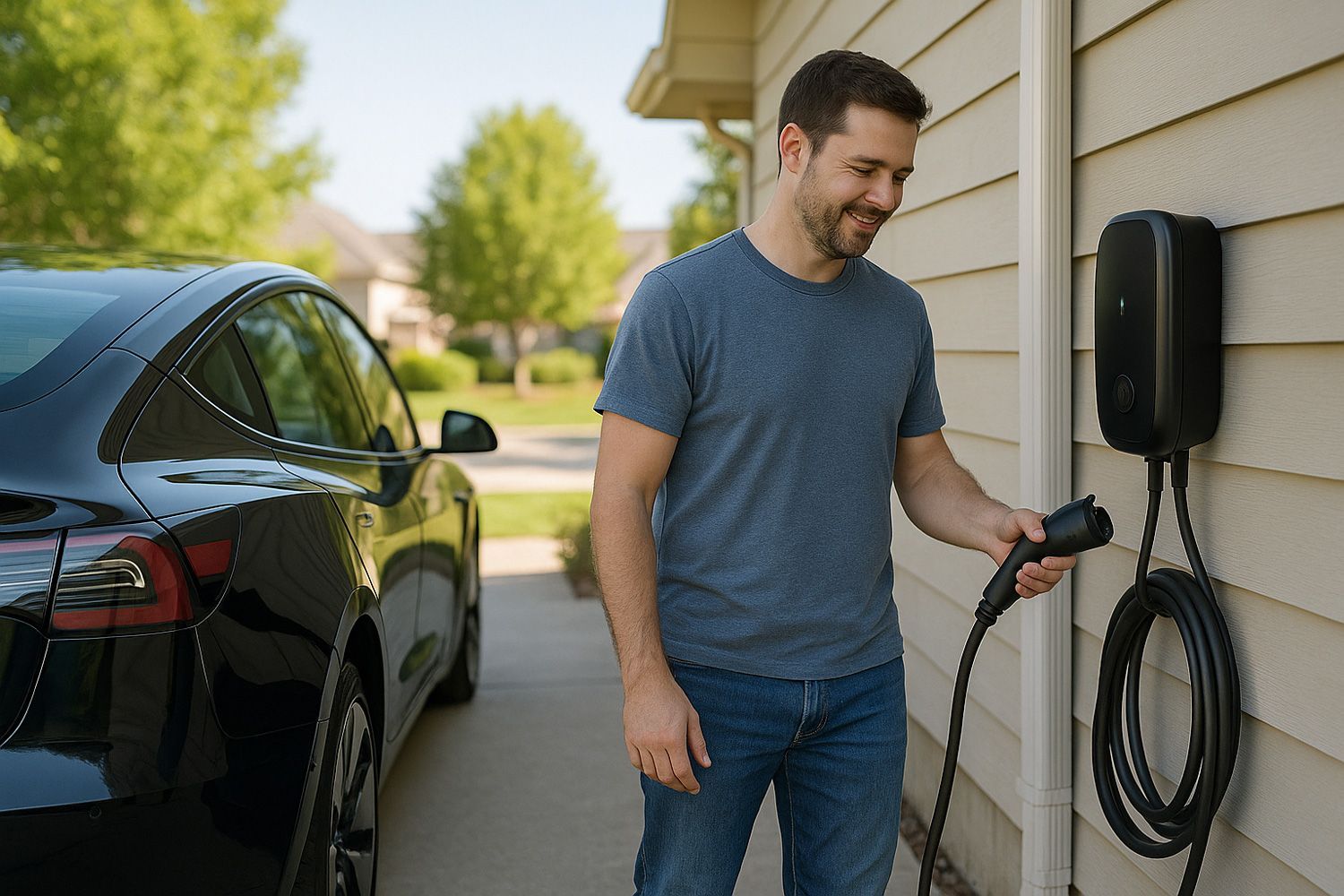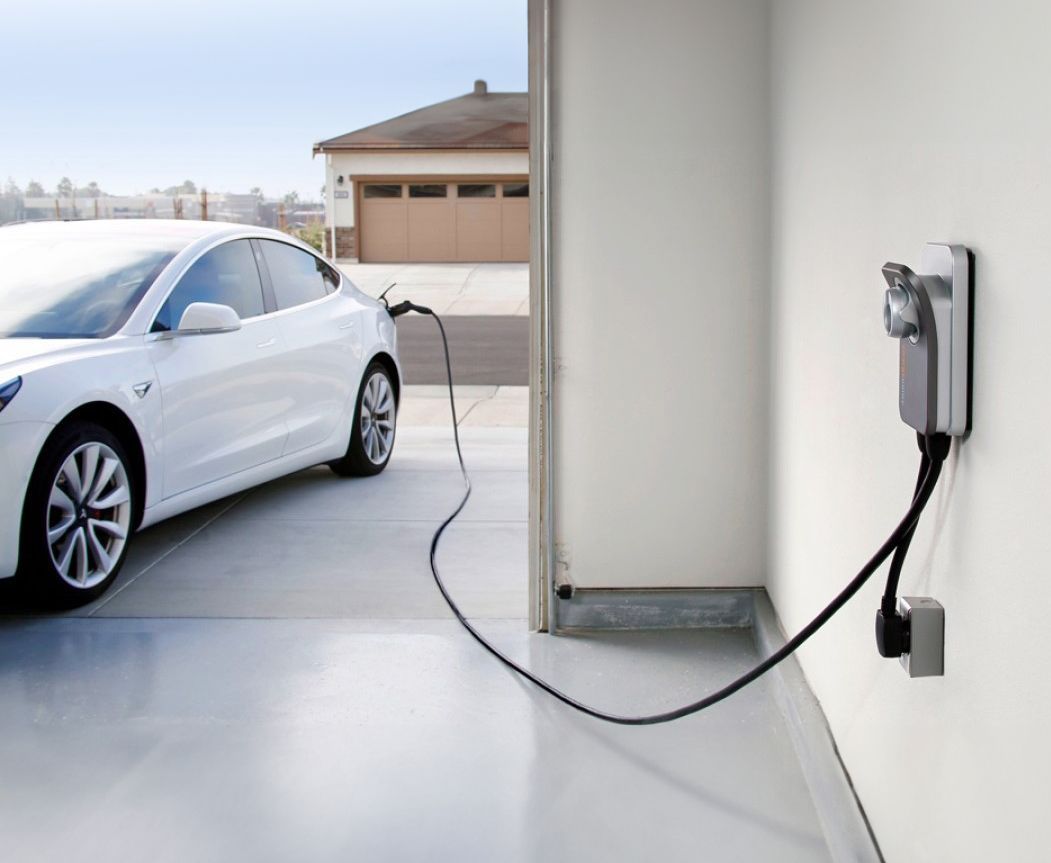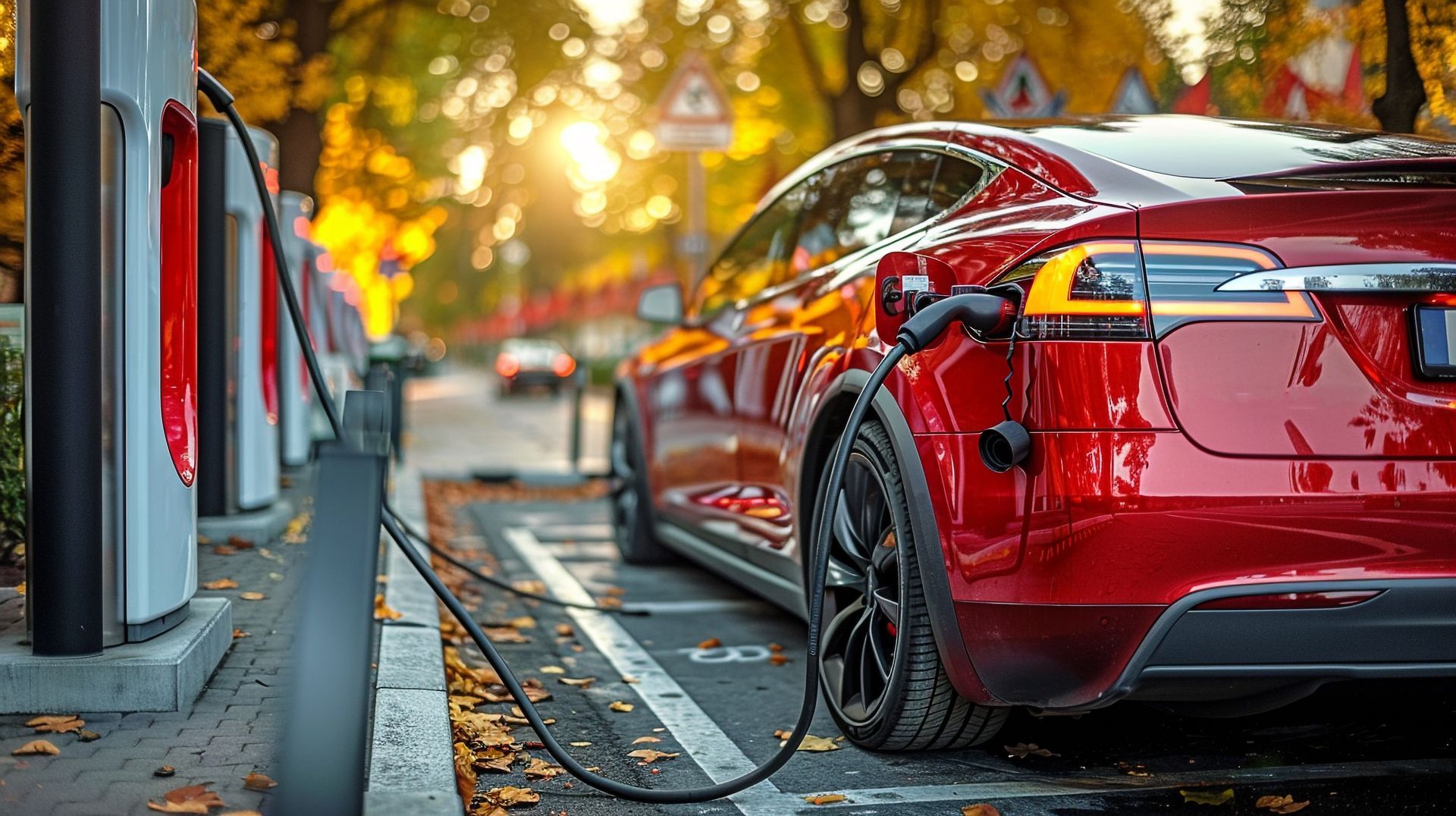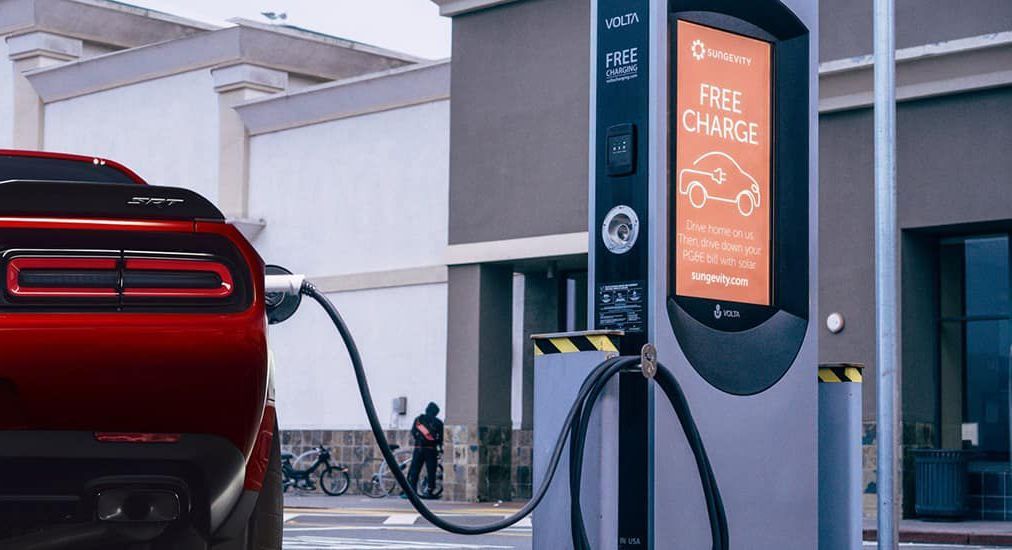As EV adoption continues to surge, more homeowners are seeking the best home EV charger to match their vehicle, lifestyle, and charging habits. Whether you’re new to electric vehicles or upgrading your current setup, selecting the right charger can significantly impact convenience, efficiency, and long-term performance.
At Car Charger Specialists, we help simplify your EV journey by guiding you through the installation and selection process. This 2025 buyer’s guide highlights top-rated chargers, their key features, and what to consider before installing a Level 2 charger at home.
What is a Level 2 Charger?
A Level 2 charger is the go-to solution for most home EV owners. Unlike standard Level 1 chargers (which plug into a typical 120V outlet and can take over 24 hours to fully charge a vehicle), Level 2 chargers use a 240V power supply, offering significantly faster charging times—typically 4 to 8 hours depending on your vehicle’s battery.
Benefits of Level 2 charging include:
- Up to 10x faster than Level 1 charging
- Compatibility with nearly all EV models
- Optional smart features like energy monitoring and mobile apps
For homeowners looking to ensure their EV is always ready to go, a home EV charging station equipped with Level 2 capabilities is a smart, future-proof investment.
Learn more about our
installation process and why Level 2 is recommended for home use.
Top Features to Look for in a Home EV Charging Station
Choosing the best level 2 EV charger means looking beyond just power and speed. Here are the key features to consider when selecting a home EV charging station in 2025:
- Amperage: Go for 32–50 amps for faster charging and future-proofing.
- Smart Features: Look for Wi-Fi, app control, and scheduling.
- Plug Type: Choose between NEMA 14-50 or hardwired based on your setup.
- Cable Length: 18–25 ft offers better reach and flexibility.
- Durability: Outdoor models should be weather-rated (NEMA 4 or better).
- Certifications: Look for UL or ETL for safety compliance.
Installing a charger that checks all these boxes not only boosts performance but also ensures safety for your family and vehicle.
Looking for rebates? Many states offer financial incentives. Visit the
U.S. Department of Energy’s Alternative Fuels Data Center to see what’s available in your area.
Top Picks – Best Home EV Chargers of 2025
With dozens of options on the market, we've narrowed down the best home EV chargers of 2025 based on performance, customer reviews, smart features, and installation ease. Each of these Level 2 chargers is compatible with most electric vehicles and supports faster charging times, making them ideal for everyday residential use.
Let’s dive into our top selections that combine innovation, reliability, and value.
1. ChargePoint Home Flex – Best Smart Charger Overall
ChargePoint Home Flex continues to lead the market in 2025 as the best-in-class home EV charging station for its smart features and sleek design.
Key Features:
- Wi-Fi enabled with real-time charging data via the ChargePoint app
- Adjustable power levels (16 to 50 amps)
- UL listed and Energy Star certified
- Amazon Alexa compatible + mobile app scheduling
- Compatible with all EVs, including Tesla (with adapter)
2. Tesla Wall Connector – Best for Tesla Owners
If you’re part of the Tesla family, the Tesla Wall Connector delivers the fastest and most integrated experience available today.
Tesla-Specific Highlights:
- Sleek, wall-mounted unit with Tesla-style plug
- Up to 44 miles of range per hour (max 48 amps)
- Wi-Fi enabled with firmware updates
- Compatible with Powerwall solar integration
While we install Tesla Wall Connectors frequently, we always recommend considering long-term flexibility—especially if your household may switch brands in the future.
3. Universal Tesla Wall Connector – Best for Multi-EV Households
The Universal Tesla Wall Connector is the perfect fit for households with multiple EVs—or those planning ahead. With a built-in J1772 adapter, it charges Teslas and non-Tesla EVs without needing a separate cable or accessory.
Why It’s a Smart Choice:
- Built-in J1772 adapter for non-Tesla compatibility
- Up to 48 amps of power
- Wall-mounted with clean, modern design
- Wi-Fi enabled + Tesla app control
4. Powershare Home Backup Bundle – Best for Energy Independence
Looking to go beyond charging? The Powershare Home Backup Bundle offers full-home energy backup and EV charging in one package. It’s designed for homes with solar or those preparing for grid disruptions.
Top Features:
- Combines Level 2 EV charging with home backup power
- Intelligent load balancing across home energy use
- Works with home batteries and solar systems
- Ideal for emergency power or grid outages
Tesla vs. Universal Chargers: What’s Right for You?
One of the most common questions we receive at Car Charger Specialists is: “Should I get a Tesla charger or a universal charger?” Here’s what to consider:
Tesla Wall Connector Pros:
- Fastest charging for Tesla vehicles
- Designed to integrate with Tesla apps and solar systems
- Sleek, minimalist design
Cons:
- Requires a J1772 adapter for other EV brands
- Less versatile if you switch to a non-Tesla vehicle later
Universal Charger Pros:
- Works with all EVs, including Tesla (with adapter)
- Easier resale and property value benefits
- Options like ChargePoint and JuiceBox offer smart features and flexible installs
Our Verdict:
If you drive only Tesla vehicles and plan to stick with the brand, the Wall Connector is a great fit. But for growing EV families or future-proofing your home, universal Level 2 chargers offer broader appeal and resale value.
Need help choosing? Our team will assess your home setup and driving habits during your
free consultation to make a personalized recommendation.
Installation Tips from Car Charger Specialists
Installing a Level 2 charger at home isn’t a plug-and-play job—it requires electrical knowledge, permitting, and adherence to safety codes. At Car Charger Specialists, we handle the entire process, including:
- Site assessment and load calculation
- Permit procurement
- Wall-mounting and cable management
- System testing and walkthrough
A poorly installed charger risks fire hazards and can void warranties. Always trust a licensed EV installer like us to do it right the first time. Learn more about our
installation services.
Cost of Installing a Level 2 Charger at Home
The total cost of a home EV charging station can range from $600 to $2,000, depending on:
- Charger model and amperage
- Distance from electrical panel
- Electrical upgrades (if needed)
- Labor and permit fees
Don’t forget: federal and state incentives may offset up to 30% of the cost. For current rebate info, check the
Alternative Fuel Infrastructure Tax Credit. We’ll also walk you through available incentives during your
free consultation.
Final Thoughts & FAQ
Choosing the best home EV charger in 2025 comes down to compatibility, performance, and your lifestyle. Whether you’re looking for a rugged outdoor charger, a smart app-controlled device, or something Tesla-specific, we’ll help you make the right call.
Ready to electrify your home? Book your
free consultation with Car Charger Specialists today and let us handle the rest.
FAQs
Q1: Can I install a Level 2 charger myself?
A: Technically yes, but we strongly advise against it unless you're a licensed electrician. Improper installs can pose safety risks.
Q2: What’s the best charger for all EV brands?
A: Chargers like ChargePoint, Emporia, and JuiceBox are universal and compatible with all J1772 vehicles (and Tesla with adapter).
Q3: How long does installation take?
A: Most home installs take less than one day. We streamline permitting and inspections for faster turnaround.
Discover our most popular blog posts, covering everything from EV charger installation tips to the benefits of renewable energy.
